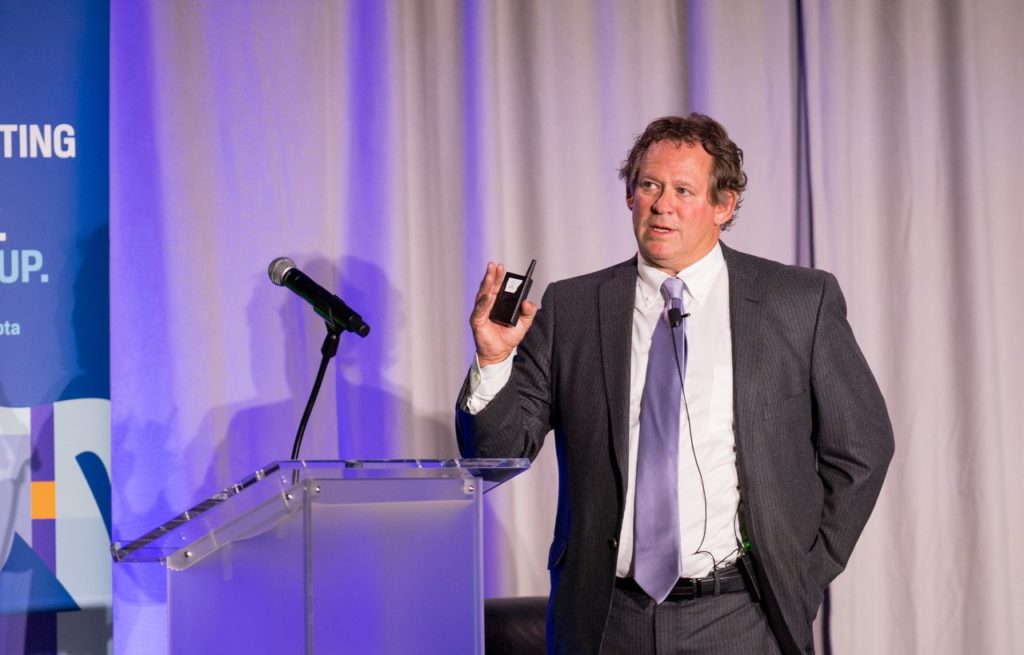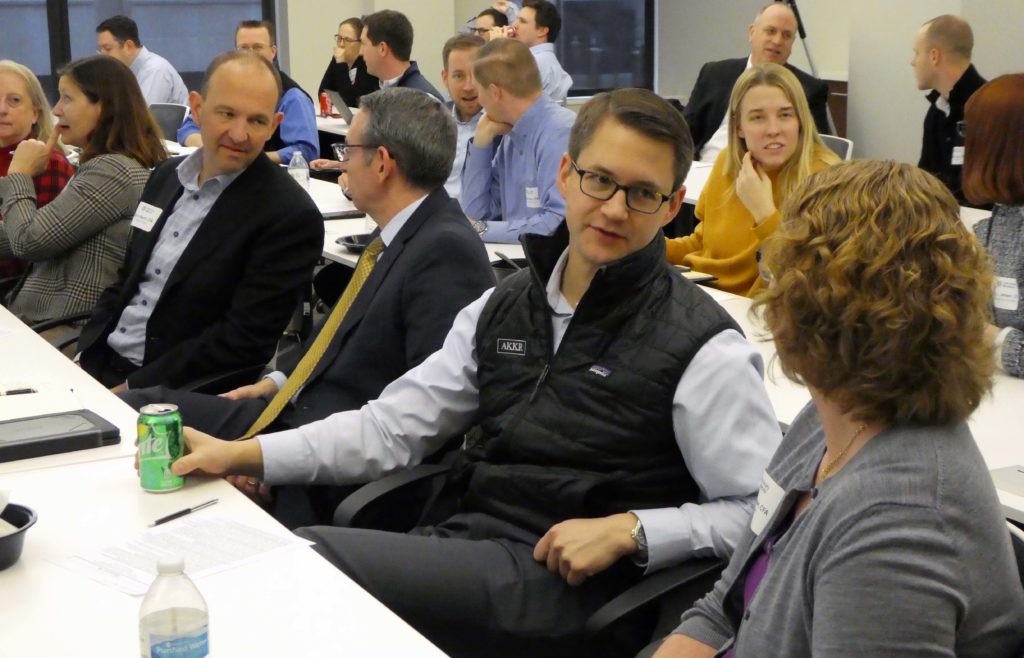
Written by: Tharaniitharan Panchalingam, Junior studying Finance and MIS at the Carlson School of Management and Fixed Income Analyst at the Carlson Funds Enterprise
The 2020 CFA Society Minnesota Annual Dinner featured Rick Rieder at BlackRock, with questions moderated by Society volunteer Susanna Gibbons, CFA, Carlson School of Management. Rick Rieder is BlackRock’s Chief Investment Officer of Global Fixed Income, Head of the Global Allocation Investment Team in the Multi-Asset Strategies Group, a member of BlackRock’s Global Operating Committee and Chairman of the firm-wide BlackRock Investment Council. In addition to this, he is a member of the Borrowing Committee for the U.S. Treasury and is currently a member of the Federal Reserve Bank of New York’s Investment Advisory Committee on Financial Markets.
The presentation got off to a humorous start with Rick sharing how his multiple flight delays in New York had him running around the Downtown Minneapolis looking for our venue! After he gathered his breath, he went into what his day was like. In the morning, he presented to the New York Fed on his outlook of the global economy and the policies that ought to be implemented. After this Rick mentioned how he was on a call with Elon Musk to give his thoughts on Tesla’s expected share sale to raise capital. Rick concluded by saying that Elon Musk is probably the smartest person of our generation.
We then went into conversations about Fixed Income; Rick believes that debt is far too cheap and that we are in an environment where spreads are unbelievably tight but, there is still a massive demand for US based fixed income assets, which further puts pressure on the US and global economy. He also stressed that due to the nature of the market, Fixed Income managers must not “stretch in 2020” and that hitting five percent would be an accomplishment.
He also touched on technology and how companies that have significant investments in R&D are creating this “incredible growth paradigm,” while those that don’t invest aren’t experiencing much growth, if any.
This led to one question that caught my attention. Susanna asked Rick, “what do you think of Negative Interest Rates and what are commercial banks’ alternative?” Rick immediately responded with “I think that negative interest rates are the dumbest invention of all time.” He went into why and stressed that it breaks down the traditional investment paradigm and that in Europe, because of the way businesses operate, growth will be extremely hard to come by. Rick said that Europe needs to create “exogenous growth” by investing in innovation. Europe’s innovation is stifling and as a result, don’t benefit from the dramatic growth that it has the potential for. He also said that Japan is in the same predicament and that there may be a time in the future where Japan will default on significant portions of its debt.
We ended the night talking about equities being very cheap relative to credit and that we will see a turn or two in equity multiples over the next few quarters.
All in all, this was a tremendous night. Rick has such a wealth of knowledge and his ability to weave a coherent picture with the data he analyses is incredible. We had great food, great company and a very insightful hour-long conversation! We hope to have Rick back soon!







 Tell me a little about yourself.
Tell me a little about yourself. By Elliot Smallidge, a student at the University of Minnesota Carlson School of Management, Class of 2019
By Elliot Smallidge, a student at the University of Minnesota Carlson School of Management, Class of 2019